The president of the Independence Movement Michel Moawad held a lunch in honor of Deputy Prime Minister and Minister of Public Health Ghassan Hasbani, at his residence in Ehden. Were present: Me Marielle Michel Moawad member of the Zgharta Municipality; the Minister of State for Presidency Affairs, Pierre Raffoul; Maronite Bishop of Zgharta and Ehden, Boulos Abdelsater; former MP Dr Caesar Moawad, the advisor to the leader of the Lebanese Forces Samir Geagea for foreign relations, Elie Khoury; the presidents of the Orders of Dentists and Physicians in North Lebanon, Adib Zakaria and Omar Ayach; the president of the Tripoli Bar, Abdullah El Shami; the Caemmacam of Zgharta Mrs Iman Al Rafi’i; engineer Naamtallah Boulos representing former MP Jawad Boulos who could not attend due to travel; in addition to mayors, Moukhtars, medical doctors, priests, representatives of political parties and members of Minister Hasbani’s delegation.
Moawad
Welcoming Minister Hasbani, the president of the Independence Movement Michel Moawad reaffirmed the close relations between them and the common goal they share regarding the building of a strong and capable State. Moawad said: “I don’t know what would be the best way to welcome Ghassan Hasbani. Shall I welcome him as the Deputy Prime Minister, as the Minister of Public Health, or as a long-term and close friend? Or is it all these combined qualifications?”
He added: “My friendship with Ghassan Hasbani goes back to the period prior to his involvement in public life, when he was a successful star in the private sector. At that time, he represented a ‘success story’ in the fields of Counselling and Communication, for a Lebanese established abroad.
“From our first meeting, we shared many common views: Our political convictions about Lebanon, its identity and sovereignty, and building the State’s institutions. But more relevant are our common values about the human being, his dignity and his rights, and about citizenship, transparency, reforms, innovations and how to enhance them, how to benefit from Lebanon’s successful private sectors in the country and abroad, how to lay the grounds to bring back home the Lebanese’s worldwide successes in the private sectors, and how to benefit from the Lebanese expertise in the private sectors bringing it to the public sectors.”
And he said: “Many responsibilities fall today on Hasbani’s shoulders: He is the Deputy Prime Minister, the Minister of Public Health and a member of the Lebanese Forces party. A long common struggle bonds us to the Lebanese Forces, with whom we keep a strong and steady alliance at a time during which everything is open to changes.
But for me, the most important is that Minister Hasbani remained the same from the time I first met him. He is the same person I got to know in the private sector, always carrying the Lebanese cause, holding to values, and believing in political reforms.”
Moawad stressed that he personally focuses on values and reforms because he is convinced about the importance of striving to restore the State’s sovereignty, of having the political decision solely in the State’s hands, and of bringing back balance to the national partnership which is the foundation for the country’s stability.
He also emphasized on the importance of unifying everyone’s efforts – regardless of regional and political allegiances – to eliminate corruption and political clientelism in Lebanon. For him these have become like a cancer in the Lebanese body. If we allowed it to keep growing, it will simply kill this body.
He added: “Whatever our political allegiances are, we all have to unify our efforts to free the Lebanese citizen from the established culture of clientelism and corruption, and to try to impose the culture of reforms and transparency. This won’t happen through pompous speeches that target our political opponents and overlook our political allies’ wrongdoing – and when political changes take place, we start to highlight our new opponents’ (and old allies) wrongdoings and overlook our new allies’ (and old opponents) transgressions. Keeping this attitude won’t allow us to succeed in eliminating corruption.”
Moawad stressed that ‘just like the present culture of corruption is transcending political alignments, the culture of reforms, transparency and bringing back values to politics should also transcend such alignments.”
He also spoke about the need to unify efforts to bring back the basic rights to the Lebanese citizens and society, and to offer the Lebanese citizen a dignified quality of living. He added: “This will start to materialize if each one carries his/her personal responsibilities properly, and applies the culture of transparency whatever be the position that he holds: whether he is a member of a Municipality committee, a mayor, a Member of Parliament, a minister or a government employee. This can start in small matters and through the simple services part the citizens’ daily life: like the traffic rules, Electricity (The citizen shouldn’t have to pay two bills), Internet, Communication, clean drinking water, proper waste water infrastructure… Eventually this would extend to health and hospitalization plans that offer basic rights to the citizens and preserve their dignity.”
Moawad added: “If this is the Lebanon that we look forward to, we need many Ghassan Hasbani as examples. To reinstate credibility to political action in Lebanon, political work has to be directed towards serving the Lebanese citizen above anything else.”
The president of the Independence Movement then offered his respects to the Lebanese Army fighting terrorism and paying heavy prices every day. He said that the Lebanese Army “is proving again and again that our protection and security is guaranteed exclusively by the Army men and the official security forces.” He wished for a quick recovery to the Army men injured in the recent clashes with terrorists.
Moawad concluded by thanking Hasbani for his gesture towards Zgharta-Zawiyeh, welcoming him once again in Ehden along with the other guests.
Hasbani
Minister Hasbani gave a speech next, in which he said: “Dear audience, our meeting in Ehden today holds two particularities. The first comes from the place that Zgharta-Zawiyat holds in the historical depth of Lebanon. Over centuries its people have participated in forging an essential part of the country’s path: the ‘message ‘that Lebanon represents to the World, and Lebanon as an oasis for plurality and diversity amidst which all the fractions interact in an equal way. The second particularity I see in your faces that show at the same time goodness and the attachment to the land. This confirms to me the vitality of the Lebanese society.
Our homeland went through very difficult times. My belief is that other prominent countries won’t have been able to withstand these. What helped us survive such adversities was the complementary partnership between the Public Sector and civil society.
The goal of our field-visit to the region is to assess the existing health, social and structural situation. This would lead to a proper evaluation of the needs of our families in Zgharta-Zawiyat, and will make our planning and strategies efficient and effective to deal properly with the reality of facts.”
He added: “As the Deputy Prime Minister, this region is part of my direct duties as Prime Minister Saad Hariri has assigned me to head the committee to study and follow up on matters related to the Cazas and the various regions of the country. We have already made the first assessments for each region, and we have started with the phase of putting down plans, and selecting solutions and the mechanism for their application. We don’t promise miracles, put we are selecting our priorities and are moving ahead with the gradual implementation. This will be a long process but it will speed up with time. The proposed solutions will be realistic, practical and will respect institutional logic, but they will be free from the traditional bureaucratic delays.
As a Minister of Public Health, my main preoccupation since I started my work was to insure the best health service to the Lebanese, in the fastest way possible and with consideration for the State’s budget. The Ministry has become a hub of activities aiming for this goal. We are trying to integrate modern changes and will slowly stop using paperwork and shift to electronic services. The e-services offered to the citizen are increasing. Is it acceptable for instance that a citizen from Zgharta spends 4 hours to reach the Ministry’s offices to follow up on his file, while in 4 hours one can fly to and reach many countries? Thus, to simplify the process of applications and free the citizens from the hardship of travel and time consumption, we are gradually widening the range of the online services.
We also have reached an advanced stage to solve the problems related to the Emergency Services in hospitals, with their cooperation and the cooperation of the Red Cross. As for the Health and overall Hospitalization IDs, we are working on creating Health IDs that will show the medical history of each citizen and facilitate the medical follow up and the proper medical preventative measures. This will represent the first step towards full hospitalization services for all the Lebanese citizens.
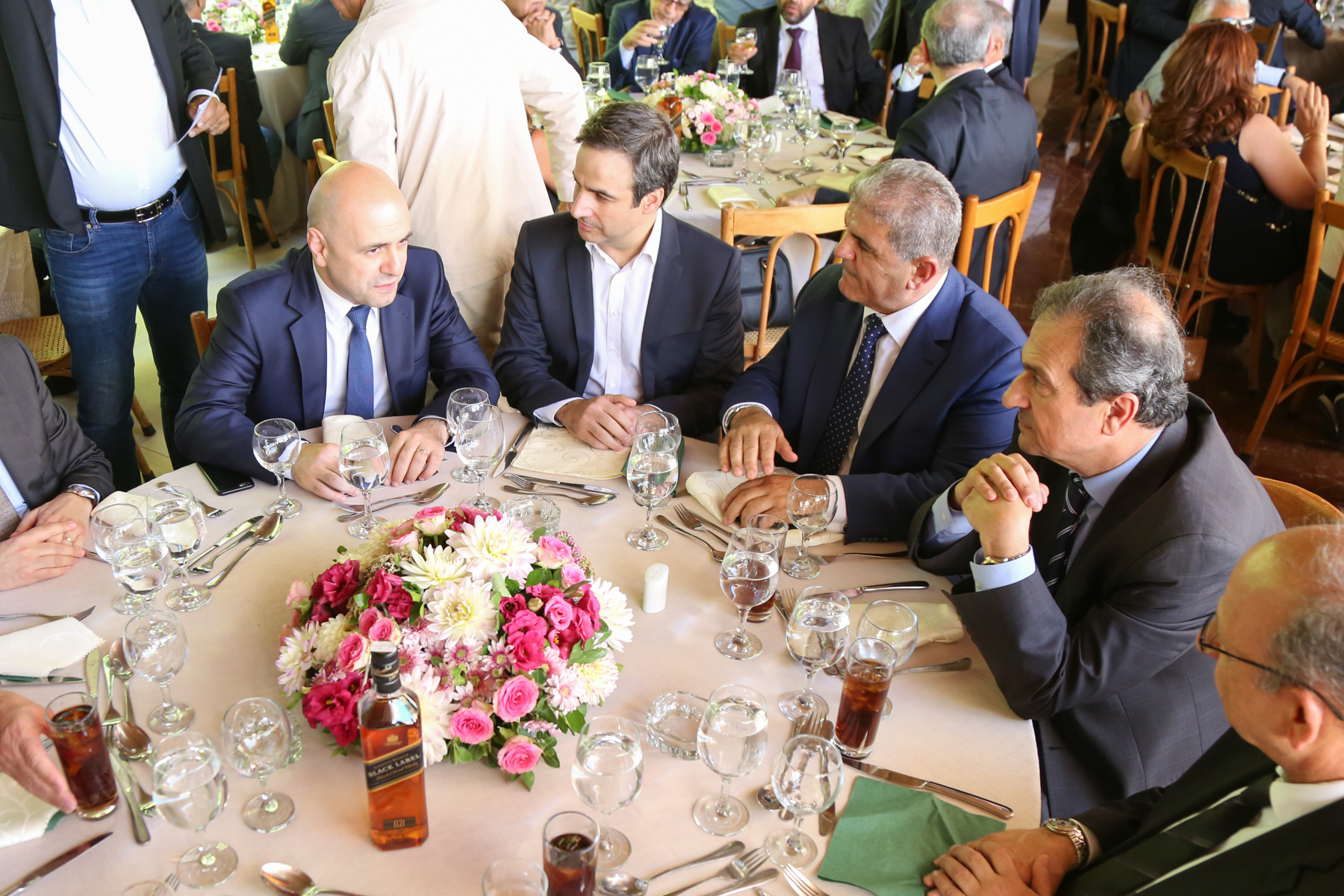
And he continued: “Hospitalization in Lebanon includes the services offered by Government and private hospitals. We are working on creating a positive environment and facilitations to encourage investments in this sector, which is a leading one in the region. We have put scientific criteria to determine the financial cap limits to be allocated, far from favoritism and personal interests. Each hospital has its particular role and size, and its financing needs. We have put scientific criteria so that each hospital receives its financial requirements without distinctions between regions, confessional belongings or between any Lebanese citizen and another. The criteria are based on the quality of services offered by the hospital, its patients-capacity and the needs of the region.
As for the Government Hospitals, we are working with donors to provide them with the required support, and help them grow and enhance their services to reach the required standard. For decades now, these hospitals have been suffering from the lack of financing and support. We are trying today to lift them back to the position they must hold to be able to provide the needed hospitalizing and humanitarian services to the citizens. In this regard the World Bank has recently approved financial support grants of 150 Million USD to Lebanon to improve its health infrastructure services, and empower the Lebanese State so that it can confront the pressures generated by the refugees. The grants take in consideration the fact that priority should be given for the Lebanese citizens to benefit from their country’s Health services. The Government Hospitals and the medical centers all around Lebanon will directly benefit from these grants.
“As the Minister of Public Health, the Deputy Prime Minister, a Lebanese citizen and a representative of the Lebanese Forces in the Cabinet, I tell you that we are working hand in hand with this Mandate to make it go down in history as the mandate during which the institutions recaptured their status and their vitality, and as the mandate that believed that building the State’s institutions can happen only through these institutions themselves and not by limiting them to marginal roles. Our arms are open to everyone, to all those who wish to rebuild the State’s institutions, to all those who wish to build a strong, free, independent, sovereign State, spreading its sovereignty and control on all the territories. I take the opportunity to salute with high respect the Lebanese Army which protects the Lebanese borders and is the only entity entitled to accomplish this duty.”
Hasbani concluded saying: “Lebanon won’t recover from its ordeals and be in a healthy state, unless we all strive to respect the human being’s dignity, to abide by the rule of Law and implement it, and to empower our institutions. We can have different political allegiances and different religious and regions belongings, but we should never disagree on essential and pressing humanitarian and social matters. Illness doesn’t differentiate between an individual and another; neither does pain or poverty. Distress and misery can fall on any of us, regardless of the position where we stand. Therefore, from the first day at the Ministry and in this Cabinet, our priority was for the individual, the citizen, the sick person that requires the most urgent help. The Lebanese citizen has a sacred right to obtain services from his Government and receive hospitalization without being a beggar. Our promise is to keep the Health sector far from any political rivalries or favoritism, as we are preparing for Parliamentary Elections. The Health Sector is for all. It has to stay far from the Elections’ polls. We hope that all will cooperate in this.






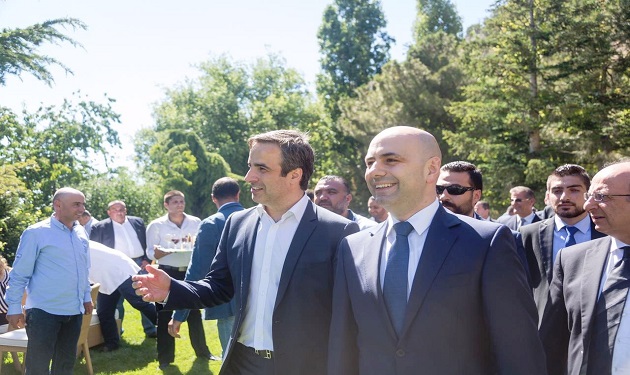
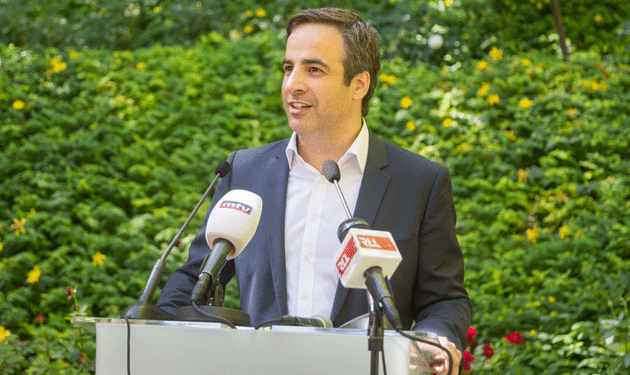
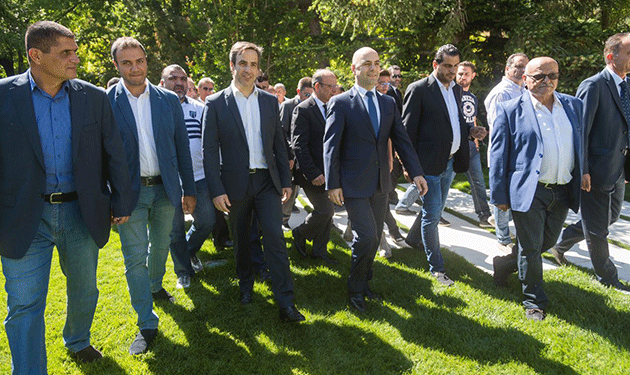
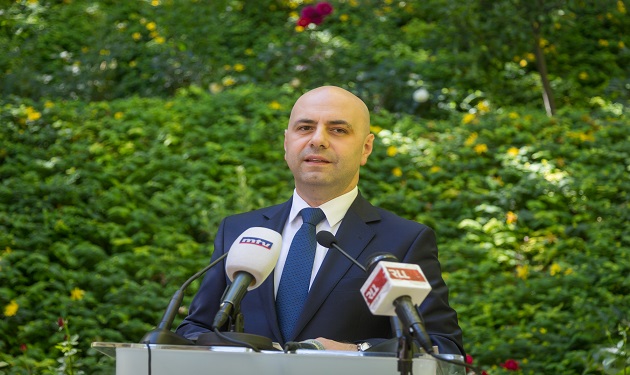
 العربية
العربية